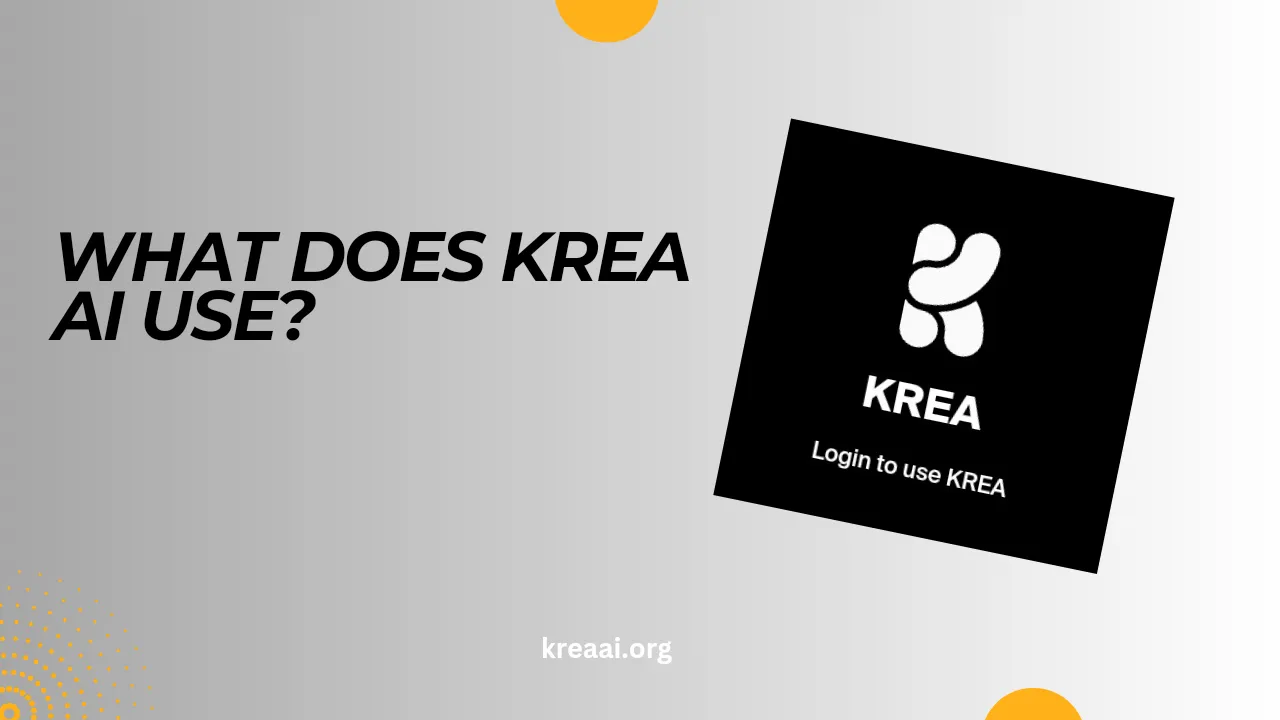Artificial intelligence is evolving at an unprecedented pace, becoming a cornerstone of innovation across industries. But with the surge of AI tools and platforms flooding the market, how do we distinguish the ones making a real impact?
One such player making waves is Krea AI, a company that’s transforming how AI can be leveraged to solve complex problems across diverse fields. In this article, we’ll explore exactly what Krea AI does and why it matters to both individuals and businesses today.
At its core, Krea AI is reshaping the AI landscape by offering solutions that blend cutting-edge technology with a deep focus on ethical development. But beyond the buzzwords, what makes Krea AI stand out?
This blog will dive into its core functionalities, unique approach, and potential applications, showing how Krea AI could be a game-changer in various sectors from healthcare to finance.
Artificial intelligence isn’t new, but its capabilities are growing rapidly, making its integration into daily life more significant than ever. The growing demand for smarter, more efficient systems is pushing AI technology to new heights.
Krea AI is responding to this demand with innovative solutions that push the boundaries of what AI can achieve, providing tools that are as impactful as they are groundbreaking.

Contents
1. Core Functionalities of Krea AI
Natural Language Processing (NLP):
Krea AI excels in Natural Language Processing, a vital branch of AI focused on enabling machines to understand, interpret, and generate human language.
Krea AI’s NLP tools can perform tasks such as sentiment analysis, text summarization, and machine translation, helping businesses in sectors like customer service, marketing, and healthcare.
By enhancing communication and processing vast amounts of textual data, Krea AI’s NLP capabilities are streamlining workflows and improving user experience.
Computer Vision:
In the realm of computer vision, Krea AI stands out with its ability to enable machines to interpret and understand visual data. Their tools include advanced capabilities in image recognition, object detection, and facial recognition.
This has major applications in industries like autonomous vehicles, surveillance, and medical imaging, where accurate interpretation of visual inputs is crucial. Krea AI is using computer vision to redefine how industries interact with images and video data, transforming sectors from security to healthcare.
Machine Learning:
Machine learning, a subset of AI, powers many of Krea AI’s offerings. It enables machines to learn from data and make decisions without needing explicit programming.
Krea AI’s machine learning algorithms provide businesses with the ability to make predictive insights, detect fraud, and offer personalized recommendations. From e-commerce platforms to financial services, Krea AI’s machine learning models are boosting accuracy and efficiency in decision-making.
2. Krea AI’s Unique Approach
Krea AI’s approach to AI development sets it apart from other players in the field. The company places a strong emphasis on ethical AI, ensuring their technologies are designed to be transparent and fair. One of the company’s key principles is explainable AI, which ensures that users can understand how decisions are made.
Krea AI also stands by open-source principles, giving others the tools to innovate and contribute to the broader AI ecosystem. This human-centric design philosophy makes Krea AI a standout choice for those looking for responsible AI solutions.

3. Krea AI’s Impact on Industries
Krea AI’s technologies are making a profound impact across numerous industries. In healthcare, for instance, its AI tools are improving diagnosis accuracy, streamlining drug discovery, and enabling personalized treatments.
In the financial sector, Krea AI is enhancing fraud detection, enabling algorithmic trading, and helping firms with risk assessment. The retail industry benefits from personalized recommendations and optimized supply chains, while education systems are integrating intelligent tutoring and automated grading.
Krea AI’s influence on transportation is also notable, with applications in autonomous vehicles and logistics optimization, making entire industries more efficient.
4. Challenges and Future Directions
Despite its remarkable achievements, Krea AI, like many AI companies, faces challenges. Ethical concerns around AI’s influence on privacy and security remain significant, especially as AI tools become more integrated into everyday life.
Additionally, job displacement due to automation and bias in AI systems are areas that need ongoing attention. Looking ahead, Krea AI is poised to push the boundaries of AI by integrating with other emerging technologies such as IoT and blockchain.
The company is focused on advancing AI research, ensuring it remains a leader in responsible, future-ready AI solutions.
Conclusion
Krea AI is at the forefront of transforming the landscape of artificial intelligence. With its cutting-edge technologies in NLP, computer vision, and machine learning, Krea AI is not only enhancing business operations but also contributing to a future where AI makes a real difference in fields like healthcare, finance, and education.
The company’s commitment to ethical development and open-source collaboration makes it a unique force in the AI industry, helping to shape a more responsible and innovative future.
As we continue to integrate AI into everyday life, the question isn’t just how it will change industries—but how we can ensure that change benefits society as a whole.
FAQs
1. How does Krea AI’s NLP technology work?
Krea AI’s NLP tools enable machines to understand and process human language, performing tasks like sentiment analysis, text summarization, and translation to assist industries like customer service and marketing.
2. What industries benefit from Krea AI’s solutions?
Healthcare, finance, retail, education, and transportation are some of the key industries that benefit from Krea AI’s technologies, improving operations and decision-making.
3. What makes Krea AI’s approach unique?
Krea AI stands out for its ethical AI development, focus on explainable AI, commitment to open-source principles, and human-centric design, ensuring responsible use of technology.
4. What challenges does Krea AI face?
Some of the challenges include addressing privacy concerns, overcoming AI bias, handling job displacement, and ensuring the security of AI-driven systems.
5. What are the future directions for Krea AI?
Krea AI is focused on advancing AI research, integrating with technologies like IoT and blockchain, and creating AI-powered products to drive future innovation.
6. How is Krea AI contributing to healthcare?
Krea AI is enhancing medical diagnosis, speeding up drug discovery, and enabling personalized medicine, ultimately improving patient outcomes.







